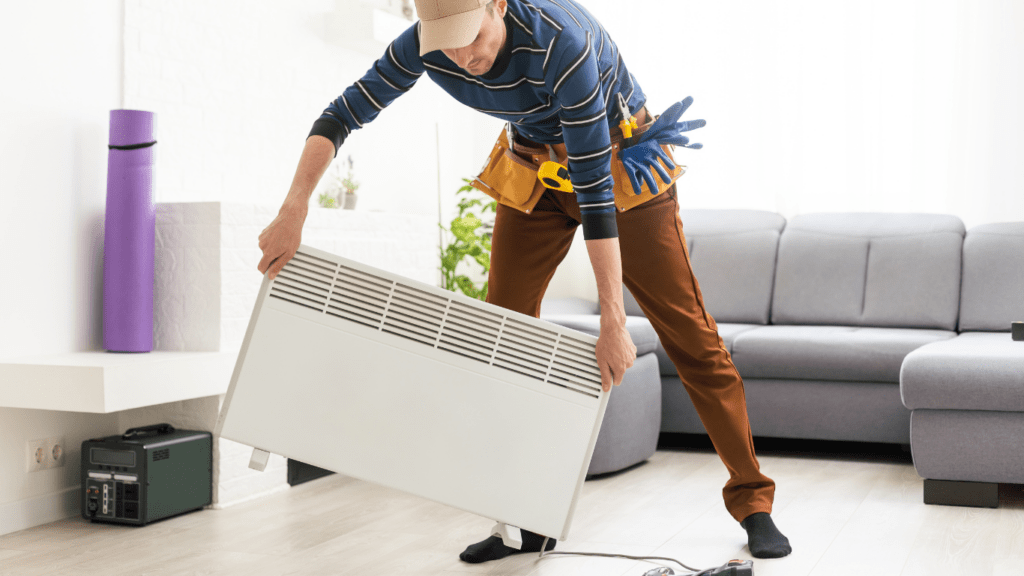Understanding the Importance of Positive Tenant Relationships
Positive tenant relationships lead to numerous benefits for property owners. Strong connections with tenants often result in longer tenancies, reducing turnover costs. Happy tenants are less likely to move, which saves time and money on finding replacements. Open communication channels foster mutual respect, minimizing disputes and misunderstandings.
Tenants who feel valued are more inclined to take care of the property. They report maintenance issues promptly and adhere to lease agreements more consistently. This proactive behavior helps maintain property value and reduces long-term repair costs.
Prompt rent payments are another advantage of maintaining good relationships. When tenants trust their landlord, they’re more likely to meet their financial obligations on time. Trust can be built through consistent, respectful interactions.
Data show that satisfied tenants are more likely to renew leases. According to a National Apartment Association study, tenant retention rates increase by up to 10% with proactive relationship management practices in place.
Investment in positive tenant relations benefits landlords financially and operationally. It creates a stress-free environment, making property management a more pleasant experience.
Effective Communication Strategies
Good communication is essential for building positive relationships with tenants. Active listening and clear messaging ensure issues are addressed promptly and efficiently.
Regular Check-Ins
Scheduling regular check-ins with tenants helps maintain open lines of communication. Monthly or quarterly meetings show tenants that their concerns matter. These check-ins can be informal, such as casual chats during property visits or more formal, like scheduled meetings. A consistent pattern of engagement helps identify potential issues early.
Open and Honest Dialogue
Encouraging open and honest dialogue fosters trust between landlords and tenants. Clearly outlining expectations, policies, and any changes to lease terms eliminates misunderstandings. When discussing sensitive topics, approach conversations with transparency and empathy. This method not only resolves issues efficiently but also strengthens tenant-landlord relationships.
Throughout these strategies, maintain a polite and professional tone. This approach ensures tenants feel respected and valued, contributing to a positive living environment.
Setting Clear Expectations
Clear expectations are vital in maintaining a harmonious landlord-tenant relationship. They lay the groundwork for mutual respect and understanding.
Lease Agreements
A well-crafted lease agreement sets the tone for the tenancy. It outlines key elements such as:
- payment terms
- lease duration
- maintenance responsibilities
Explicitly stating these details prevents future disputes. Including clauses on late fees, subletting, and property use ensures tenants understand their obligations.
House Rules and Policies
House rules and policies detail acceptable behaviors in the rental property. Specifying guidelines regarding noise levels, pet policies, and communal area usage fosters a peaceful living environment. Clear policies help tenants know what’s permissible and aid in maintaining order. Documenting these rules in the lease agreement provides tenants with a reference point, reducing misunderstandings.
Prompt Maintenance and Repairs

Timely maintenance and repairs are essential for building strong relationships with tenants. I’ll show how to establish a maintenance schedule and handle emergencies efficiently.
Establishing a Maintenance Schedule
Creating a regular maintenance schedule prevents issues before they become major problems. Regular tasks like inspecting HVAC systems, cleaning gutters, and checking plumbing ensure the property stays in good condition. For example, I inspect HVAC systems twice a year, clean gutters every autumn, and check plumbing quarterly. Schedule these tasks in advance and inform tenants of upcoming visits to foster transparency and cooperation.
Handling Emergencies Efficiently
Addressing emergencies promptly demonstrates reliability and care. When an urgent issue arises, I assess the situation immediately and dispatch the necessary help. Providing tenants with a 24/7 emergency contact number ensures they can reach me anytime. For instance, if a pipe bursts or the heating fails during winter, I send a professional to resolve the problem within hours. Rapid responses to emergencies build trust and show tenants their comfort and safety are my top priorities.
Respecting Privacy and Boundaries
Maintaining tenant privacy and respecting boundaries enhances trust and satisfaction. Providing proper notice (usually 24-48 hours) before entering their unit for inspections or repairs respects their space. Tenants appreciate adherence to these legal mandates, fostering a feeling of security.
Communicating Entry Policies ensures transparency. Clearly stating entry procedures in the lease agreement helps avoid misunderstandings. Mention acceptable entry reasons, such as maintenance or inspections, ensuring tenants’ lives aren’t unduly disrupted.
Limiting Access to personal information is crucial. Safeguard tenant data like social security numbers or bank details to build confidence in property management practices. Unauthorized sharing of their information can erode trust rapidly.
Responding to Privacy Concerns efficiently is essential. Addressing tenant complaints or queries regarding privacy respectfully and promptly shows commitment to their comfort and rights. Compromising on this can negatively impact the landlord-tenant relationship.
Respecting Spaces designated for tenant use reinforces boundaries. Avoid using areas like private patios or garages without explicit consent. This acknowledgment of space ownership by the tenant solidifies mutual respect and maintains professional boundaries.
Considering Noise Levels in shared living environments respects tenant boundaries. Informing both new and existing tenants about acceptable noise levels and quiet hours helps maintain a peaceful atmosphere in shared spaces, fostering a considerate living environment.
These practices collectively contribute to a respectful, private, and comfortable living experience for tenants, essential for building positive and lasting relationships.
Conflict Resolution Techniques
Positive landlord-tenant relationships benefit greatly from efficient conflict resolution techniques. Using the right strategies can prevent minor issues from escalating.
Addressing Complaints Promptly
I resolve complaints fast to show tenants their concerns are important.
- Delaying responses can cause frustration.
- If a tenant reports an issue, I acknowledge it within 24 hours.
- Immediate acknowledgment, even if the resolution can’t be swift, shows my commitment.
For example, if a tenant reports a plumbing issue, I’ll schedule a visit the same day. This timely communication reduces stress and builds trust.
Mediation Skills
When conflicts arise between tenants, mediation can be effective. I act as a neutral facilitator to help them reach a mutual agreement. Keeping communications clear and impartial allows each party to express concerns. For instance, in noise disputes, I let each tenant describe their perspective, then suggest practical compromises. Mediation prevents disputes from affecting the living environment and helps maintain a harmonious community.
By addressing complaints promptly and using mediation skills, I foster a positive atmosphere in my rental properties.
Encouraging Community and Engagement
Building strong relationships with tenants extends beyond addressing individual needs; it involves fostering a connected community. A well-knit community keeps tenants happier and encourages longer tenancies.
Organizing Community Events
Organizing community events facilitates tenant engagement. I host annual events, like BBQs, holiday parties, or game nights, which create opportunities for tenants to interact. These events help build connections among tenants and between tenants and me.
I also promote participation in neighborhood activities. Informing tenants about local events or organizing group outings helps them feel more integrated into the larger community. An involved and engaged community leads to a positive living environment and stronger tenant relations.
Fostering a Sense of Belonging
Creating a sense of belonging starts with open communication. I send regular newsletters or emails updating tenants on property news and inviting feedback. This shows transparency and helps tenants feel valued and heard.
Implementing a tenant portal can also bolster engagement. Through the portal, tenants can easily access lease information, submit maintenance requests, and stay informed about community events. A comprehensive tenant portal enhances communication and fosters a more connected community.
Encouraging new tenants to introduce themselves on community boards or through welcome events further strengthens community ties. When tenants feel part of a supportive network, they’re more likely to enjoy their living experience and remain long-term tenants.

 Michael Matherne has been instrumental in the development of Villa Estates Luxe, leveraging his extensive background in real estate and digital marketing to shape the platform's success. His strategic insights have been crucial in curating the latest news and market trends, ensuring that users receive timely and relevant information tailored to their needs. Michael has also been pivotal in enhancing the overall user experience, implementing innovative features that make navigating the site seamless. His commitment to providing high-quality content and fostering a community of informed buyers and investors has significantly contributed to Villa Estates Luxe’s reputation as a trusted resource in the luxury villa market.
Michael Matherne has been instrumental in the development of Villa Estates Luxe, leveraging his extensive background in real estate and digital marketing to shape the platform's success. His strategic insights have been crucial in curating the latest news and market trends, ensuring that users receive timely and relevant information tailored to their needs. Michael has also been pivotal in enhancing the overall user experience, implementing innovative features that make navigating the site seamless. His commitment to providing high-quality content and fostering a community of informed buyers and investors has significantly contributed to Villa Estates Luxe’s reputation as a trusted resource in the luxury villa market.